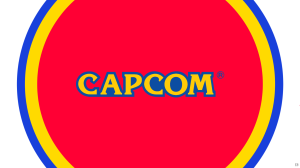
As Dungeons & Dragons grows in popularity, more and more creators are turning to the DMs Guild as a viable source of income and a chance to build their tabletop roleplaying game portfolio. Dungeons & Dragons has surged in popularity over the last few years, thanks to a mixture of new mainstream awareness and an easy to access ruleset. While Wizards of the Coast (and its predecessor TSR Inc.) thrived on a business model of near-monthly releases to provide a stream of content for fans, they instead shifted to a streamlined release schedule of just 4 to 5 major publications per year. For at least a subset of D&D fans, these quarterly releases aren’t enough, especially as players look to branch away from the “official” campaigns with either shorter or more varied adventures, or look to add more complexity to their games through new rulesets.
Videos by ComicBook.com
Helping to fill this gap is the DMs Guild, an online marketplace owned by OneBookShelf. The DMs Guild serves as one of the primary marketplaces for non-Wizards of the Coast D&D material, and benefits from a unique licensing agreement. While anyone can publish D&D material using the “Open Gaming License” which provides strict guidelines as to what can and can’t appear in those publications, material published at the DMs Guild can use official D&D IP and settings. This means that designers can make adventures featuring mind flayers, build out subclasses based on Faerun lore, or provide alternative rules for races and subclasses not covered by the Open Gaming License.
The unique licensing agreement of the DMs Guild has benefits for both creators and Wizards of the Coast. Creators gain access to an expanded set of IP, while Wizards of the Coast and OneBookShelf split a 50% share of any sales made on the DMs Guild. Although some see that 50/50 sales split as detrimental, many creators note that the DMs Guild provides a bigger audience, free advertising in the form of newsletters and charity bundles, and removes some of the risk that comes from self-publishing. Because of those benefits, the DMs Guild has quickly become a place where TTRPG creators can turn their passion into a steady stream of income, or even a full-time career. Several DMs Guild creators have even gone on to work for Wizards of the Coast on official D&D projects.
“The first time I saw the DMs Guild as a serious potential source of income was recently following the publication of Mordenkainen’s Tome of Marvelous Magic II,” said Celeste Conowitch, a freelance writer who has worked for Wizards of the Coast, Kobold Press, and White Wolf Publishing. “I remember logging into my DMs Guild account a couple of days after publication, and being floored to see a triple-digit number in the royalties column. I was looking at a month of rent kind of money from a single product!”
An active and thriving community of creators has also sprung up from the DMs Guild, providing a valuable source of both information, comradery, and networking. Some creators cite that community as a way to overcome many of the barriers into TTRPG publishing. Willy Abeel, the creator of The Book of House, noted that networking with other designers helped provide additional motivation and provided valuable insight. “Within DMs Guild alone you’ve got designers on Twitter and Facebook and especially on Discord, all hungry to talk shop,” Abeel explained. “They might not all jump in to review what you’ve made, but they’re sharing experiences, working through design problems, and collaborating with one another.” Abeel also credited the DMs Guild with providing him and his partner Leon Barillaro with access to a willing audience. “Being able to release game content, seeing what sticks and what doesn’t, and honing my design ability with minimal barrier to entry is invaluable.”
“The DMsGuild was the first marketplace that allowed me to gain confidence in my creativity and future projects,” explained Jacky Leung, the organizer of the Unbreakable anthology and an award-winning freelance writer and editor. “Still, it was the creator community that would accelerate the trajectory into becoming a freelance TTRPG creator.” Leung started creating content for the DMs Guild in 2018 and quickly built a network by working on the collaborative projects Artifacts of the Guild and the Uncaged anthologies. Leung noted that those projects granted him additional opportunities to work with other publishers.
Christopher Walz, the writer of the popular An Ogre and His Cake, echoed Leung’s sentiments, noting that joining collaborative efforts and making contacts was vital in improving his own work. “Listening to fans of your work is certainly important,” Walz said. “But ‘talking shop’ with other creators has been invaluable.”
The popularity of the DMs Guild has even led to the creation of a dedicated track on the popular RPG Writers Workshop, a bi-annual course dedicating to teaching new creators how to write and publish TTRPG material. Ashley Warren, the founder of the workshop, noted that a partnership with the DMs Guild made sense because it was where so many writers publish their content. “If writers want to leverage this massive IP archive and the decades of D&D lore to kickstart their creativity, DMs Guild is the avenue for that,” Warren said. “So our partnership with the DMs Guild is to help make that path as approachable as possible and get writers to the finish line.” The DMs Guild also works with the Workshop to promote work published Workshop participants, which provides an early spotlight for these new creators.
Because the DMs Guild is an open marketplace where anyone can publish, it can still be a difficult place to get noticed. Several creators noted that one key to success is to keep creating and improving. “The most important thing for aspiring creators that I often tell is that the first product you release will probably be not great,” Leung said. “That’s okay. Listen to feedback, improve, and continue to create. Keep on creating. The lesson is about consistency and self-improvement. Everything is a process for self-improvement of your craft. You will develop your audience over time, but it can only be done if you’re consistent.”
“The folks championing the charts are the ones who publish new material frequently, or at least consistently,” added Conowitch. “Making regular content keeps your name in people’s minds, and often time name recognition is all you need to sell a product. As a bonus, the more projects you work on, the more you learn and grow as a maker.”
Whether you’re looking to start a new career in TTRPG or are simply looking to share your ideas with others, the DMs Guild can be a huge resource for those looking to pursue game design. “I don’t think I’d be doing any of the work I currently do in the tabletop roleplaying gaming industry without DMs Guild,” Warren said. “Although I was a writer and educator prior to becoming a narrative designer, DMs Guild helped me achieve an audience in ways that I never would have expected. That platform and community gave me a starting point to share my work in this industry, and through it I’ve met hundreds of people around the world and have been able to facilitate large-scale collaborations that otherwise would have taken much more of my time and resources.”









